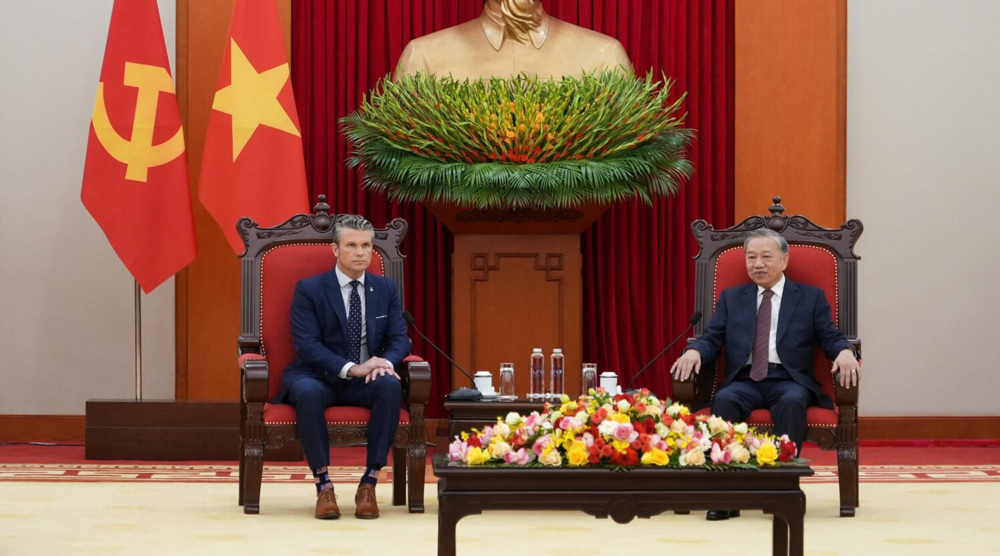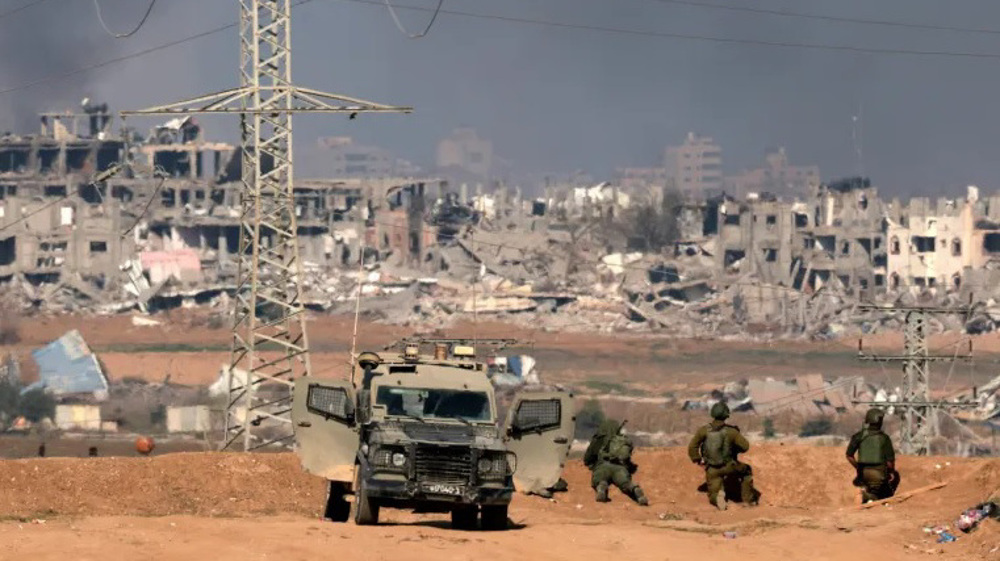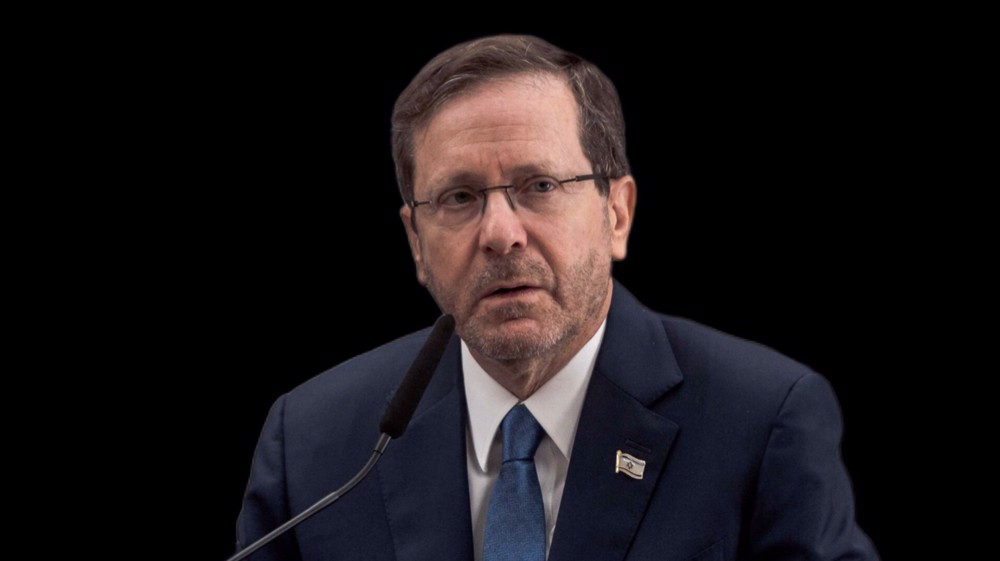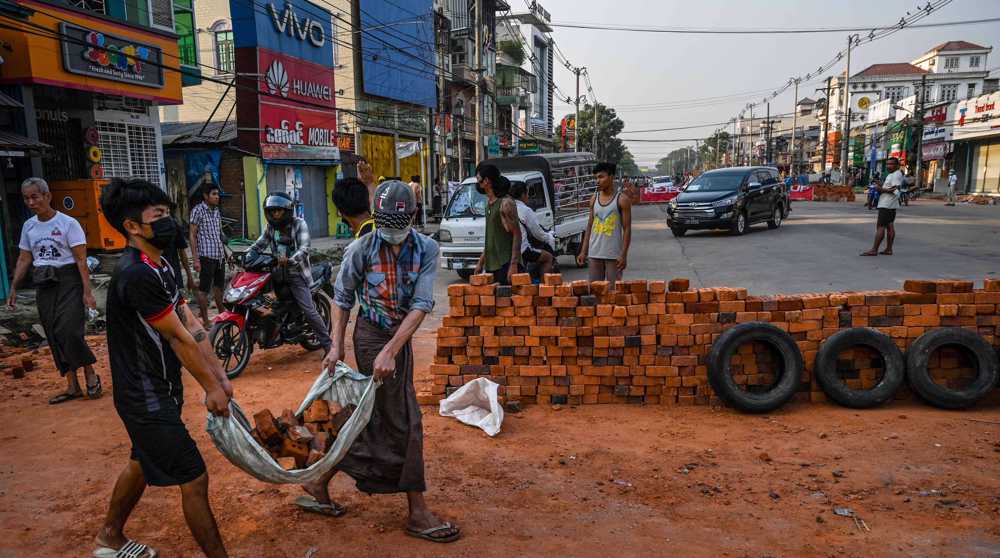UN expert says Myanmar military likely behind 'crimes against humanity', urges more sanctions
The UN's top expert on rights in Myanmar says the country’s military is likely to be committing crimes against humanity in its heavy-handed crackdown on protesters since the February 1 coup.
Thomas Andrews made the remarks while addressing a session of the UN Human Rights Council in Geneva, where he said that at least 70 people have reportedly been "murdered" since the military coup in southeastern Asian nation.
"There is growing evidence that (the) Myanmar military, led by the same senior leadership, is now likely engaging in crimes against humanity, including the acts of murder, enforced disappearance, persecution, torture, and imprisonment in violation of fundamental rules of international law," Andrews said.
According to AFP, while stressing that such offences can only be determined in a court of law, he said there is clear evidence that the junta's crimes were "widespread," "systematic" and part of a "coordinated campaign."
Andrews stated that such crimes were being carried out with "the knowledge of senior leadership," including junta leader Min Aung Hlaing.
The UN expert also called for imposing multilateral sanctions on the military junta leaders and on the military-owned Myanmar Oil and Gas Enterprise whose revenues from natural gas projects are set to reach $1 billion this year.
Andrews added that Myanmar is currently being "controlled by a murderous, illegal regime."
This came after reports said earlier on Thursday that at least nine more protesters have been shot dead in Myanmar after security forces opened fire on anti-coup demonstrations during the ongoing unrest against the recent military coup.
Media outlets, citing health and rescue sources, said that six people were killed in the central town of Myaing when security forces fired on a protest rally on Thursday.
"Six men were shot dead while eight people were wounded -- with one man in a critical condition," a rescue worker said.
Witnesses said that one person was killed in the North Dagon district of the largest city of Yangon.
One death was reported in Mandalay, second largest city, and another two people were injured there.
There was also a fatality in Yangon's North Dagon, where a 25-year-old man died after being shot in the head.
Before Thursday's deaths, an advocacy group said that over five dozen protesters have been killed and about 2,000 people detained by security forces since the February 1 coup.
Myanmar's coup and the ensuing crackdown have drawn widespread international condemnation as well as targeted sanctions by some countries against top generals.
A new report by Amnesty International said on Thursday that the Myanmarese military was using lethal tactics and an arsenal of battlefield weapons to carry out a "killing spree" against peaceful protesters.
"These Myanmar military tactics are far from new but their killing sprees have never before been live-streamed for the world to see," Amnesty International's Senior Crisis Response Adviser Joanne Mariner said.
And the Asian Development Bank announced it had temporarily suspended funding for government projects in Myanmar "as the international community assesses the evolving situation."
The United Nations Security Council has already condemned the violent crackdown on peaceful protesters in Myanmar, but has not denounced the recent military takeover in the country as a coup or to threaten further action.
In a statement agreed on Wednesday, the UNSC said it "strongly condemns the violence against peaceful protesters, including against women, youth and children," and urged Myanmar's military to show restraint.
But language that would have condemned the coup and threatened possible further action was dropped from the statement due to opposition by certain countries, including India and Vietnam.
The junta has, however, shrugged off pressure by foreign countries.
The military held a rare news conference in the capital, Naypyidaw, on Thursday, accusing deposed leader Aung San Suu Kyi of corruption, alleging that the deposed de facto leader had accepted illegal payments.
Myanmar has been gripped by turmoil since the military ousted Suu Kyi in a February 1 coup and detained her as well as other senior figures from the ruling National League for Democracy (NLD) and took control of the country.
The junta, which has declared a one-year emergency across Myanmar, claimed that it seized power after it found fraud in elections held three months earlier that the NLD had won in a landslide.
Since then, hundreds of thousands of people have held numerous protests against the coup leaders in the Southeast Asian country, demanding the release of Suu Kyi and the other detainees.
The Myanmar military has already been accused of committing genocide and crimes against humanity in its crackdown on the Muslim Rohingya in Rakhine State in 2017.
Israeli airstrikes on Lebanon reach highest level since Nov. 2024 ceasefire: Report
VIDEO | Venezuelans commemorate 34 years since the start of the Bolivarian Revolution
Iran’s new ground stations to boost satellite control, speed up image reception
Gallup: US stands out for political fear, economic stress
IRGC Navy seizes two fuel smuggling vessels in Persian Gulf
Iran march into AFC Futsal Asian Cup final with win over Iraq
Hamas slams latest Israeli strikes on Gaza, says Netanyahu aims to derail truce
UN group denounces EU’s ‘illegal’ designation of Iran’s IRGC














 This makes it easy to access the Press TV website
This makes it easy to access the Press TV website